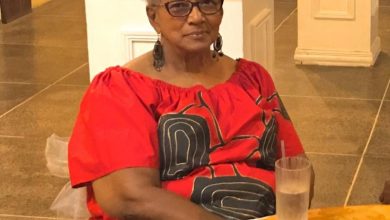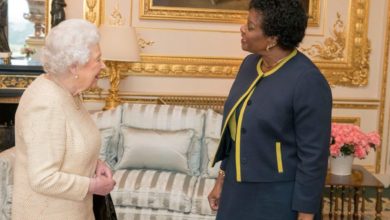Haiti’s presidential council fires prime minister
Worried about a growing state of anarchy in its most populous and needy member state, Caribbean leaders rushed to an emergency meeting in Jamaica in March with the aim of cobbling together an interim administration to stem the political and humanitarian bleeding in Haiti as heavily armed gangs had all but taken control of the capital and related areas.
They had succeeded in setting up a nine-person transitional presidential council to help stabilize the country, be the focal point for countries sending peacekeeping forces to the island, to organize fresh elections by early 2026 and to generally restore some semblance of daily governance.
The leaders, along with western and other nations comprising the Friends of Haiti group, were happy that they had at least some political structure to relate to as they sought to put together a multinational force to take on the gangs, raise development funds for the country and put it on a path to some semblance of recovery.
But in the past few days, a new political crisis is threatening to raise its ugly head again as infighting among the nine-person council has boiled over into full scale political war.
At the weekend, a majority of council members voted to oust Prime Minister Garry Conille following weeks of disagreements with President Leslie Voltaire.
Conille, 58, has only been able to serve as head of government for six months. A formal announcement was made about his firing on Monday.
Conille had been publicly feuding with Voltaire and other colleagues about how the business of government should be conducted with Conille refusing a presidential request to reshuffle and reorganize the council for alleged greater efficiency. Several meetings between the two to agree on a way forward bore no fruit so the situation was put to a vote with Conille emerging as an embarrassed loser.
Reacting to his plight on Monday a defiant outgoing prime minister dismissed the move by the council as unconstitutional, noting that such powers are reserved for parliament even though the country has no functioning national assembly. “Although the presidential council has the prerogative to appoint the prime minister, no legal text gives it the power to dismiss him. The agreement of April 3rd and the decree of May 27, 2024, which organize the transition, clearly define the governance procedures, but they do not in any way allow the council to unilaterally terminate the functions of the prime minister,” he said in an open letter to the public. “We are currently going through a deep and extremely urgent crisis. Haiti faces colossal challenges. Gangs that control a large part of our capital, widespread insecurity that affects the population, a food crisis that is hitting the most vulnerable hard, and thousands of displaced families.
Local businessman Alix Didier Fils-Aime will replace Conille as PM. He is 52. Conille was a United Nations development expert. He had previously served as a PM just over a decade ago but was also forced out by fellow high officials.
Speaking Monday, Caricom officials pointed out that Conille was bound to have lost a battle with President Voltaire largely because he had not only apparently overrated hiis political importance but had also not been the most popular among colleagues on the council so the proverbial writing was always on the wall for an early departure. His dismissal is expected to be gazetted later on Monday even as arguments about the legality of his firing are swirling in Haiti.
As locals monitor developments, the main armed gang in Haiti Monday served notice of a major resumption of gang warfare. Vivre Ensemble led by former police officer Jimmy “Barbecue” Cherizier asked locals to remain indoors while gangsters take on the foreign legions of troops and police officers collaborating with local enforcement groups. Barbecue announced plans for gang warfare in a video message released to local media outfits.
Sensing that the internal disagreements were debilitating to Haiti, regional leaders in a recent statement had chided the council, noting that “this growing lack of cohesion imperils the transitional process based on the spirit and the principles of compromise, consensus and inclusiveness set out in the Political Agreement of 11 March 2024 in Jamaica and the Political Accord of 3 April 2024 drawn up by the Haitian stakeholders. These differences between the leaders of the executive also undermine confidence among Haiti’s partners and the wider international community, impeding the provision of the critical assistance that Haiti urgently requires to address and overcome the complex crisis in which it is presently mired. Caricom is deeply concerned by the ongoing differences being played out in public between the President of the Transitional Presidential Council (TPC) and the prime minister of Haiti,” the bloc had stated.




